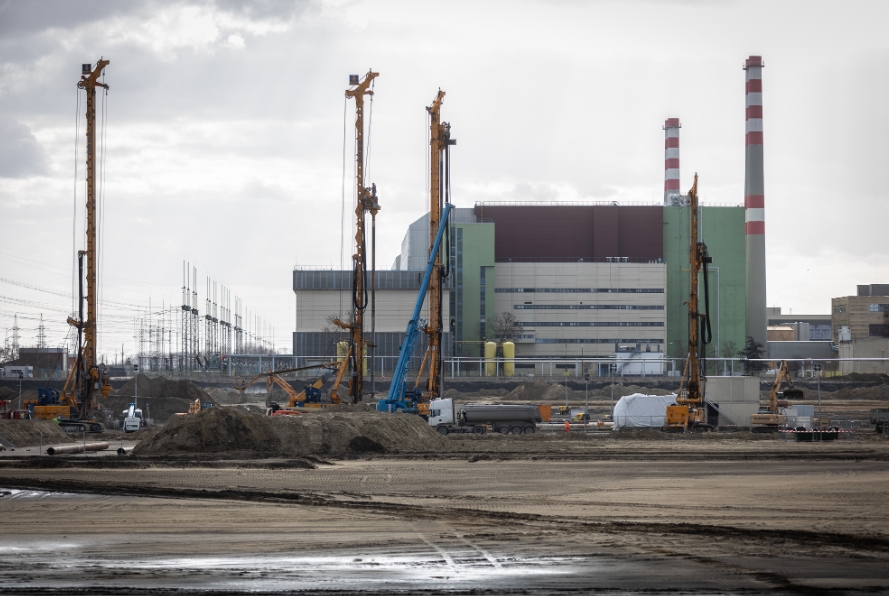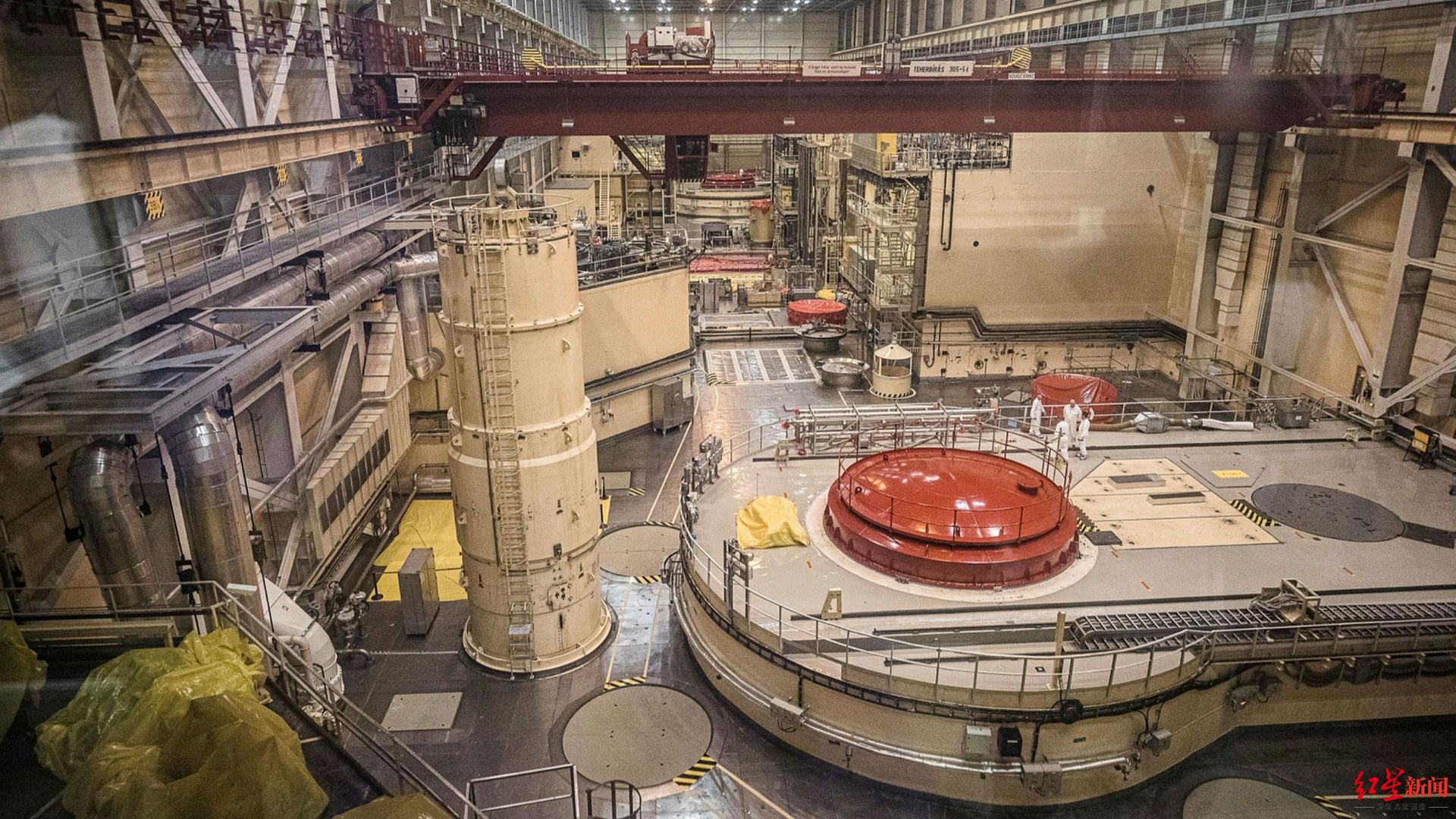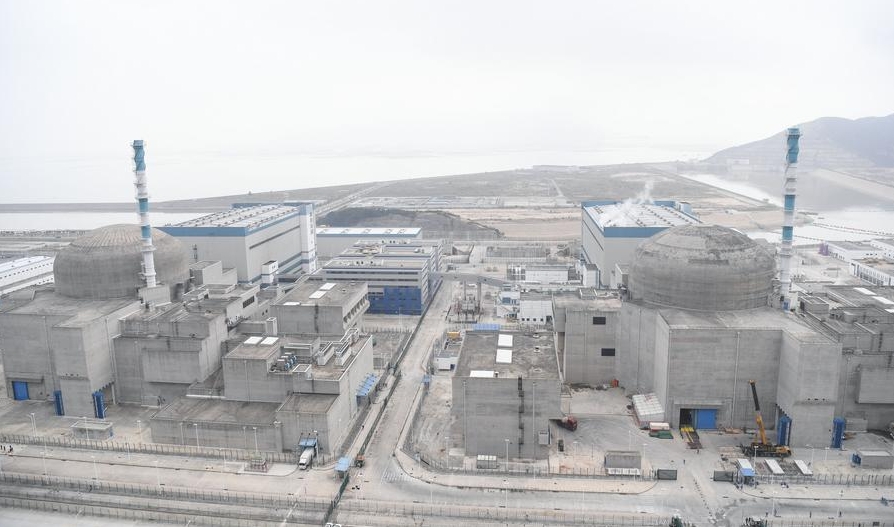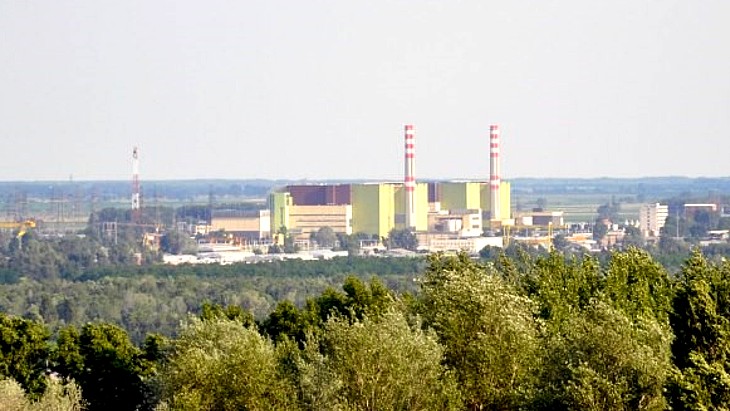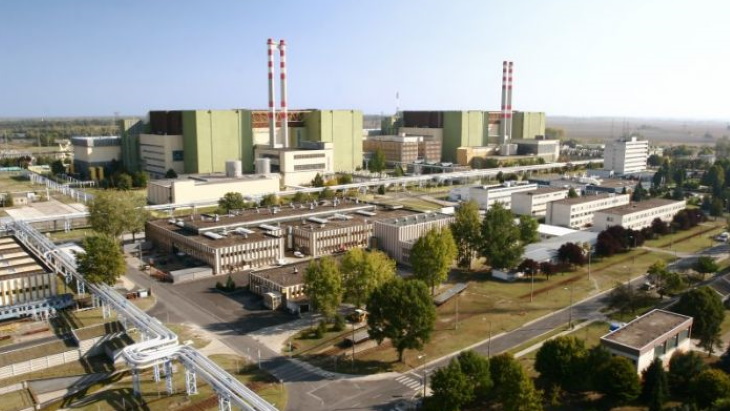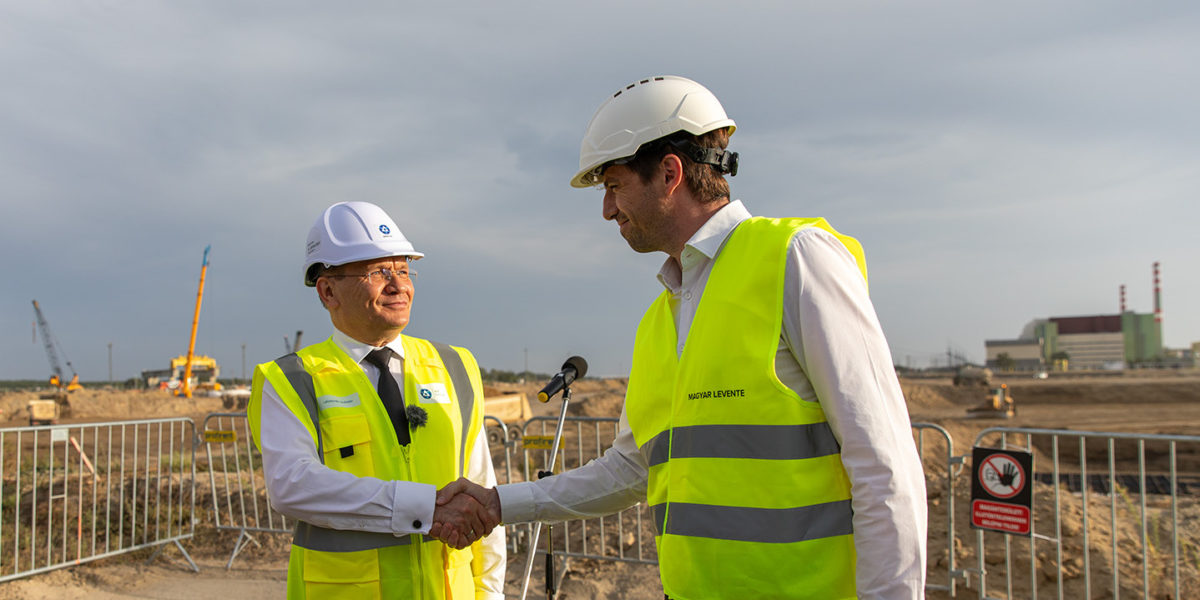Hungarian Foreign Minister Péter Szijjártó and Rosatom's Director General Alexei Likhachev have signed an agreement on the schedule for the construction of the Paks II nuclear power plant.
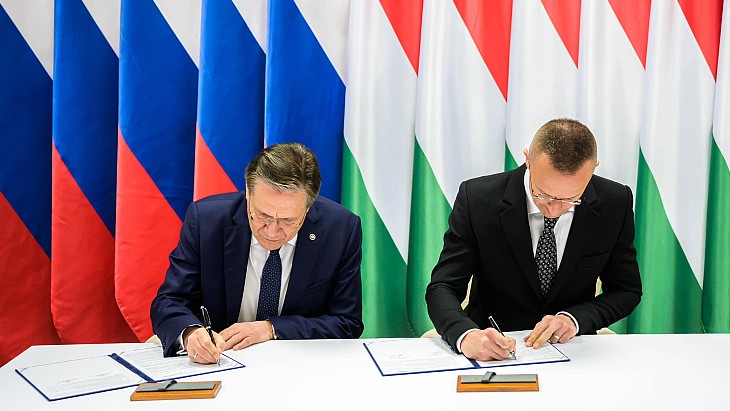
Although the detail of the agreed schedule has not been released, Szijjártó (pictured, right, with Likhachev) said on his Facebook page: "We signed the Paks II schedule, based on which we will connect the new nuclear power plant to the network at the beginning of the next decade. It's been a long journey but the work is finally about construction and not paperwork."
During a visit to the site, he highlighted the international nature of the project: "We are proud that the construction of two new power units at the Paks II is currently the largest nuclear project in Europe that has received a construction licence. It is truly international, since in addition to the Russian general contractor, 94 Hungarian companies and many American, German, French, Swedish and Austrian contractors participate in it."
He added that the new units will mean Hungary can boost its economic performance at the same time as cutting its carbon emissions, as well as providing it with energy security.
Likhachev said "we are ready to implement this project as efficiently as possible", noting there were already four VVER-1200 units operating in Russia, while the second Belarusian unit was handed over earlier this month and another 14 units with VVER-1200 reactors are being built at other foreign sites. He said that the handover was expected in the early 2030s with a workforce trained, and the supply of fuel assured.
According to the official Paks II project website, Likhachev added: "We are well aware that the international environment is not exactly friendly towards Rosatom, but we are ready to implement this project to the maximum despite external pressure."
The Paks II project was launched in early 2014 by an intergovernmental agreement between Hungary and Russia for two VVER-1200 reactors to be supplied by Rosatom, with the contract supported by a Russian state loan to finance the majority of the project. The construction licence application was submitted in July 2020 to construct Paks II alongside the existing Paks plant, 100 kilometres southwest of Budapest on the banks of the Danube river. The construction licence was issued in August 2022.
The existing four units at Paks are VVER-440 reactors that started up between 1982 and 1987 and they produce about half of the country's electricity. Their design lifetime was for 30 years but that was extended in 2005 by 20 years to between 2032 and 2037. In December, the Hungarian Parliament approved a proposal to further extend their lifespan, which means preparations can begin on operating the plant into the 2050s.
Hungary is pressing ahead with the Russian nuclear power plant project despite other European Union countries cutting, or reducing, their energy links with Russia following the outbreak of its war with Ukraine. Szijjártó has said that Hungary will not agree to any EU sanctions against Russia which affect nuclear energy.

